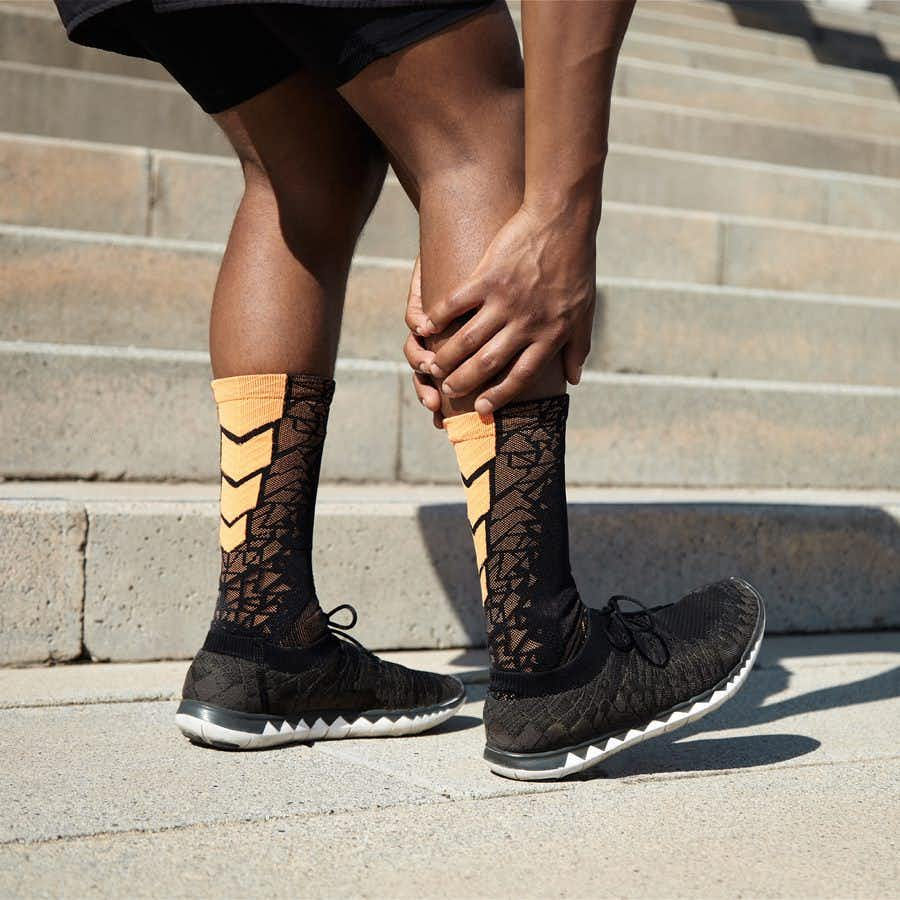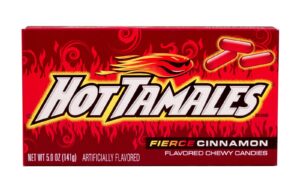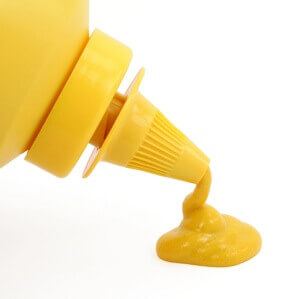
Have you suffered from muscle cramps after exercise or overnight? Many readers have shared unusual leg cramp remedies over the years. We recently came across a study supporting the use of a supplement we hadn’t considered previously: vitamin K2.
Could Vitamin K2 Prevent Nighttime Leg Cramps?
Nighttime leg cramps can wake a person from sleep with excruciating pain. Although they are common, physicians have little to offer a patient who suffers from them frequently. The FDA has not approved any medications to treat leg cramps and has specifically forbidden doctors from prescribing one old-fashioned treatment, quinine.
Now a placebo-controlled trial of nearly 200 volunteers found that a supplement, vitamin K2, reduced the frequency, intensity and duration of nighttime leg cramps (JAMA Internal Medicine, Dec. 1, 2024). The trial lasted eight weeks, during which people took 180 micrograms vitamin K2 or and identical-appearing placebo every day. People taking the placebo did not experience any change in their nighttime cramps.
According to the study, the difference was significant. Moreover, the investigators did not identify any adverse events from the vitamin. People taking the anticoagulant warfarin, however, need to avoid sudden changes in vitamin K intake.
The researchers conclude:
“Due to the safety profile of vitamin K2, clinical trials are encouraged to confirm the efficacy of cramping management and its impact on the quality of life and sleep in patients with NLCs [nighttime leg cramps].”
Brie Cheese Joins Leg Cramp Remedies:
One reader found an ingenious solution to the problem of nighttime leg cramps.
Q. I have always been bothered by my legs and feet cramping at night. I put soap chips in socks that I wear to bed each night, and that usually helps.
Recently though, I really was struggling. Despite the soap and yellow mustard, my feet and legs would cramp. It was a problem when I would do core strengthening exercises too.
My daughter saw an article about vitamin K2 for leg cramping. Instead of a supplement, I bought some Brie cheese. I love it but usually limit it to special occasions. The cramping stopped within days of enjoying a bit of cheese daily!
A. How clever of you to figure out a natural way to get vitamin K2 for leg cramp prevention! A study was conducted in China using a 180 microgram supplement of vitamin K2 as MK-7 (JAMA Internal Medicine, Dec. 1, 2024). Over the course of two months, the volunteers on K2 experienced fewer nighttime cramps, while those on placebo continued at the same rate of 3.6 per week.
The best food sources of vitamin K2 are meat, dairy products and eggs, with fermented foods also supplying substantial amounts. Natto, made from fermented soybeans, is very rich in vitamin K2, providing 850 micrograms per serving.
Supplements containing vitamin K2 in the form of MK-7 are available. ConsumerLab.com ranks Bronson vitamin K2 highly.
What About Muscle Cramps During the Day?
Vitamin K2 is a recent introduction into the armamentarium against leg cramps. We don’t know if it would help against daytime muscle cramping linked to vigorous exercise. For this problem, a number of readers are enthusiastic about leg cramp remedies such as pickles or yellow mustard. Why would they work?
Several years ago, we spoke with a neuroscientist who explained why some of these unusual approaches work. One reader has come up with a simple and unique solution.
Spicy Candies Stand Out as Leg Cramp Remedies:
Q. You’ve written about nighttime leg cramps in the past. Since I have some experience with that, I’ll share my favorite approach. I have tried pickles or pickle juice to ease leg cramps, but that’s not convenient at bedside. In the middle of the night, mustard is not really palatable.
I have found the magic. Hot, spicy candy, such as Hot Tamales, work really well. (Cinnamon bites work too.) I keep these in my bedside table. When I feel the cramp starting, I quickly chew one Hot Tamale and often it is enough. They work fast but if one doesn’t do it, I chew another. For me, this chewy candy is darn near miraculous.

A. Thanks for a fantastic demonstration of the power of home remedies. Doctors have no FDA-approved treatment for nighttime leg cramps. But readers of this column have been sharing their solutions for decades.
We now have a scientific explanation for why strong flavors like cinnamon or mustard can interrupt a painful muscle cramp quickly.
Many years ago, two neuroscientists developed severe arm cramps while ocean kayaking. They spent the next 10 years figuring out what caused the cramps and how to relieve them.
Muscle overuse can sometimes trigger nerves to fire inappropriately and make the muscle fibers contract. However, stimulating nerves through transient receptor potential (TRP) channels can reverse the contraction. Cinnamon, ginger and capsaicin (the active ingredient in hot peppers) all activate TRP.
The neuroscientists concocted a drink they call HotShot to ease cramps. It contains these TRP-activating ingredients.
Is Apple Cider Vinegar a Miracle for Cramps?
Q. I have suffered with leg cramps at night for many years. They may have been due to wearing high heels. After retirement they didn’t occur as often, but I still got them occasionally.
Then I happened upon your radio program. You were interviewing the person who developed HotShot for muscle cramps. During that show, you also mentioned apple cider vinegar as a remedy. I priced HotShot and decided I’d try vinegar first, since I already had some on hand.
For me, apple cider vinegar is a miracle! If I feel a leg cramp coming on, I get up and take a teaspoonful of vinegar. The cramp is usually gone quickly, and I can go back to bed and sleep peacefully! I keep a two-ounce bottle in the car for leg cramp emergencies while driving.
The Scientific Background for HotShot:
A. The scientists who developed HotShot used strong flavors in their muscle cramp remedy. These include cinnamon, ginger and an extract of hot pepper. Such spices along with sharp flavors like vinegar or mustard activate transient receptor potential (TRP) channels in the mouth, throat and stomach. This may override the hyperexcited motor neurons responsible for leg cramps.
If you, like us, are fascinated by scientific explanations for such treatments, you may be interested in our eGuide to Favorite Home Remedies.
Mustard for Muscle Cramps:
Q. My wife told me about leg cramp remedies, including the mustard cure some time ago. I thought it sounded wild, as I don’t understand how it would work.
Last week, I participated in a run/walk in Indianapolis with some old friends. Two of them ran a half marathon. After the race, we were sitting in a bar when one guy had a massive and painful cramp in his left quad. He is a well-trained runner so the cramp was unusual.
Massage and stretching had no effect. I went to the unattended bar looking for anything that might help. There was a slice of lime, so I grabbed it, not thinking it would make any difference, but willing to try whatever was at hand. My friend sucked on it and said the effect was essentially immediate! The cramp dissipated quickly.
We joked about it for the rest of the day. I still don’t have an explanation.

TRP Channels to the Rescue:
A. Neuroscientists have shown that triggering special transient receptor potential (TRP) channels in nerve cells can stop muscle cramps quickly. This is an elegant explanation for why tasting strong flavors like pickle juice, mustard, ginger, quinine or cinnamon might be helpful. Perhaps lime also stimulates TRP channels.
Explaining Unusual Leg Cramp Remedies:
We have asked many health professionals if they’ve ever heard of TRP (pronounced trip) channels. Inevitably we get a blank stare. This is not something that was generally taught in medical school, certainly not as an explanation for odd leg cramp remedies.
We think that stimulating TRP channels may explain a great many unusual treatments. But before we get carried away, let’s shoot down some myths associated with leg cramps.
Leg Cramp Myths:
The two leading explanations most frequently offered by health professionals to explain muscle cramps are:
- Leg cramps are caused by dehydration
- Leg cramps are caused by electrolyte imbalances
These are the two dominant theories that have been kicking around for decades. Neither is true, even though they persist to this day.
An article in the British Journal of Sports Medicine (June, 2009) puts these hypotheses into question.
“Scientific evidence in support of the ‘electrolyte depletion’ and ‘dehydration’ hypotheses’ for the aetiology of EAMC [Exercise Associated Muscle Cramps] comes mainly from anecdotal clinical observations, case series totalling 18 cases, and one small (n = 10) case-control study. Results from four prospective cohort studies do not support these hypotheses. In addition, the ‘electrolyte depletion’ and ‘dehydration’ hypotheses do not offer plausible pathophysiological mechanisms with supporting scientific evidence that could adequately explain the clinical presentation and management of EAMC.”
Elite athletes in highly competitive sports get paid millions of dollars to perform at their best. Professional basketball, football, hockey and soccer teams employ high-priced trainers whose job it is, in part, to prevent cramps from interfering with athletes’ performance. If all it took to avoid muscle cramps was fancy water with added minerals, you can bet these teams would have employed it long ago.
Actual Data:
An actual experiment conducted on ultra-marathoners (56km road race) concluded (British Journal of Sports Medicine, Aug. 2004):
“The results of our study do not support the common hypotheses that EAMC [exercise associated muscle cramping] is associated with either changes in serum electrolyte concentrations or changes in hydration status following ultra-distance running. An alternative hypothesis to explain the aetiology of EAMC must therefore be sought.”
An Alternative Hypothesis:
Twenty years ago, South African scientists proposed that exercise associated muscle cramps were caused by (Journal of Sports Sciences, June, 1997):
“sustained abnormal spinal reflex activity which appears to be secondary to muscle fatigue.”
In other words, when muscles are overworked and exhausted, they send signals to the spinal cord that turn on a reflex that in turn triggers painful muscle cramps. If you could interrupt that spinal reflex by stimulating nerves in the mouth, throat and stomach, you might be able to turn off the cramps. Research now supports this hypothesis.
Turning on TRP Channels:
That is precisely what happens when you stimulate TRP channels with strong flavors (Muscle & Nerve, May 9, 2017). Researchers at Penn State University used a double blind, randomized, cross-over design to test this approach. Subjects drank either a strong-flavored placebo beverage or the special drink that stimulates TRP channels (capsicum, cinnamon, ginger). Fifteen minutes later they performed a challenging exercise designed to induce muscle cramps.
Here is what the researchers discovered:
“Our data suggest that TRP channel activation may have dampened alpha-motor neuron hyperexcitability to mitigate cramping…These results are very promising for athletes and for those who experience muscle cramps during recreational activity…In conclusion, in a group of young, healthy participants with a prior cramp history, ingestion of TRP channel agonists 15 min before testing positively altered EAMC [exercise associated muscle cramp] characteristics.”
TRP Channels and Unique Leg Cramp Remedies:
Here is why we think TRP-channel activation explains the mechanism of action of so many home remedies for leg cramps. These leg cramp remedies work very quickly, often within two minutes. There is no plausible explanation other than a nerve activation one. It takes far too long for a substance to be swallowed, absorbed into the blood stream, circulate to the muscles and turn off the cramps.
Stories from Readers:
Mustard:
M.B. tried everything before tasting yellow mustard:
“I just woke up from having leg cramps. I tried everything to get them to stop. But they wouldn’t. This was my first time trying the yellow mustard. I sit here now with no cramps. So I guess the mustard does work!”
J.R.A. offers this:
“I use to have bad leg cramps after a hard day’s work. Then I read about mustard. It usually takes about 2-3 tablespoons. I drink a glass of water after swallowing the mustard, and then the cramps are gone.”
Ken in Virginia responds:
“Yes, mustard works but I suggest you NOT wash it down with water because it works best the longer it stays in your mouth.”
Chuck in Illinois loves the taste of mustard:
“I keep some mustard packets in my bed stand drawer, and always bring some along when I travel. It’s true that it works almost instantly. Fortunately, I love the taste.”
Pickle Juice:
We think it’s the acetic acid (vinegar) in pickle juice that stimulates TRP channels.
Barbara in Spokane had success with pickle juice:
“Ever since I heard about swallowing a shot glass of dill pickle juice, I use it for nighttime cramps. IT WORKS! I keep it in my mouth for a few seconds before swallowing. There might be some new research about this, and it has something to do with nerve receptors in the pharynx, not electrolyte imbalance. Cheap, hasn’t harmed me.”
Ken says pickle juice works fast:
“You should also try the soap-under-the-sheet-method as a preventative. The other product that works instantly for me is pickle juice…swallowing just a teaspoonful works immediately for me.”
Karen took us to task:
“I am baffled by why your discussion of muscle cramps does not (and never does) begin with attention to basic electrolyte balance. Surely attention to potassium and magnesium in the diet is more useful to all-body health than drinking pickle juice?”
Sorry, Karen, the science suggests that electrolyte imbalance does not cause EAMC [exercise associated muscle cramps]. You are probably right about the overall importance of potassium and magnesium for health, though.
Turmeric:
Turmeric is the yellow spice in curry.
This person reported that he couldn’t stand the taste of mustard but turmeric worked instead:
“Mustard works for leg cramps. But I really don’t like mustard straight up, especially at night. When I get leg cramps, I mix 1/4 tsp turmeric in four ounces of water and drink it down. Leg cramps subside in about one minute or less, faster than mustard and a whole lot more palatable.”
We cannot prove it, but we suspect that turmeric may also stimulate TRP channels.
Juice Combination:
Marsh came up with quite a concoction:
“I’ve found relief from nocturnal or recumbent leg cramps by mixing and drinking the following:
- 1/2 cup of water
- 1/2 cup of tomato juice
- 1/2 cup of orange juice
- 1 teaspoon of lemon juice”
There are hundreds of comments about different leg cramp remedies. Here are just a few more about mustard and its potential mechanism of action:
We think TRP channel activation is the common denominator. Even soap may stimulate TRP channels.
How else can you explain this fast response?
“My left hand was cramping badly. My fingers were twisting and the pain was unbearable. I searched ‘hand cramps’ on the web, found your suggestion and held a bar of soap. It worked within two minutes and the cramp hasn’t returned.”
Learn More:
Readers who enjoy such quirky approaches to common ailments may find our book, The People’s Pharmacy Quick & Handy Home Remedies, helpful.
Share your own story of muscle cramps below in the comment section and please vote on this article at the top of the page if you found it worthwhile.
Citations
- Tan J et al, "Vitamin K2 in managing nocturnal leg cramps: A randomized clinical trial." JAMA Internal Medicine, Dec. 1, 2024. DOI: 10.1001/jamainternmed.2024.5726
- Schwellnus MP et al, "Aetiology of skeletal muscle 'cramps' during exercise: a novel hypothesis." Journal of Sports Sciences, June, 1997. DOI: 10.1080/026404197367281
- Schwellnus MP, "Cause of exercise associated muscle cramps (EAMC)--altered neuromuscular control, dehydration or electrolyte depletion?" British Journal of Sports Medicine, June 2009. DOI: 10.1136/bjsm.2008.050401
- Schwellnus MP et al, "Serum electrolyte concentrations and hydration status are not associated with exercise associated muscle cramping (EAMC) in distance runners." British Journal of Sports Medicine, Aug. 2004. DOI: 10.1136/bjsm.2003.007021
- Craighead DH et al, "Ingestion of transient receptor potential channel agonists attenuates exercise-induced muscle cramps." Muscle & Nerve, May, 9, 2017. DOI: 10.1002/mus.25611

